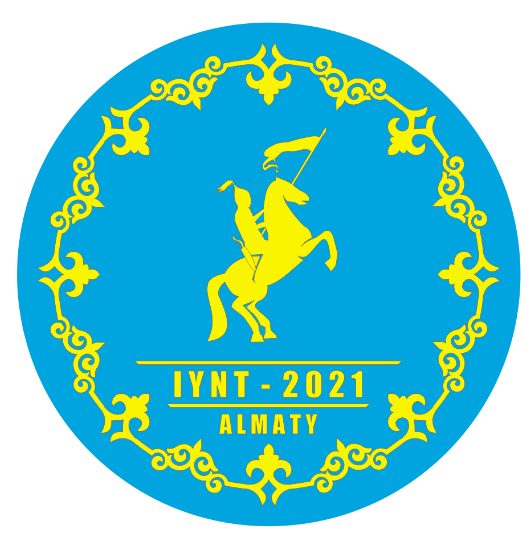PRELIMINARY INSTRUCTIONS TO THE JURY IN A CIVIL CASE
6 HIGHLY PRELIMINARY DRAFT JUNE 21 2000(VERY PRELIMINARY DRAFT) ICRIER PROJECT ON INTRAASIAN FDI FLOWS
17 PRELIMINARY SUMMARY REPORT ON TRANSMISSION FROM GRIMETON RADIOSAQ
2014_12_preliminary_pond_repair_retrofit_site_assessment
3 MA IN ENGLISH LITERATURE ROMANTICISM PATHWAY PRELIMINARY
4 PRELIMINARY STUDIES & PROGRESS REPORT IN THIS SECTION
Preliminary Instructions to the Jury in a Civil Case
Preliminary Instructions to the Jury in a Civil Case
Good morning, members of the jury. Before we begin the trial, I want to give you some preliminary instructions to help you understand what will happen during the trial and also to guide your conduct. I will give you detailed instructions near the end of the trial but what I say now is to explain to you your role here, as well as the role of the court and the role of others here.
This is a civil case. In a civil case, the party who brings the lawsuit is called a plaintiff. In this case, the plaintiff is _______________. The party against whom the suit is brought is called the defendant. In this case, the defendants are ________________.
In a civil case, the plaintiff has the burden of proving his case by what is called the preponderance of evidence. That means the plaintiff has to produce evidence which, considered in the light of all the facts, leads you to believe that what the plaintiff claims is more likely true than not. To put it differently, if you were to put plaintiff’s and defendants’ evidence on opposite sides of the scales, plaintiff would have to make the scales tip somewhat on his side. If the plaintiff fails to meet this burden, the verdict must be for the defendants.
Those of you who have sat on criminal cases will have heard of proof beyond a reasonable doubt. That requirement does not apply to a civil case and you should, therefore, put it out of your mind.
It is your role to decide disputed questions of fact. You and you alone, are the judges of the facts. Nothing I say or do during this trial should make you feel one way or another about the facts. You will hear the evidence, decide what the facts are, and then apply those facts to the law which I will give to you. Even if you personally disagree with the law, you are bound to accept it and follow it as I give it to you. I will decide all questions of law that arise during the trial.
You must keep an open mind to both sides during this entire trial until it is time for you to retire and deliberate. You must not decide this case near the beginning, halfway through or near the end. You must wait to decide until you have heard all the evidence, and I have given you the instructions as to the law before you render your decision.
You will decide this case based on the evidence. The evidence from which you will find the facts will consist of the sworn testimony of witnesses, documents, and other things received into the record as exhibits.
Statements and arguments by lawyers or an unrepresented party are not evidence in the case, unless made as an admission or stipulation of fact. When the parties stipulate or agree to the existence of a fact, you must, unless otherwise instructed, accept the stipulation as evidence, and regard that fact as proved to you.
Objections to questions are not evidence. Lawyers and unrepresented parties have an obligation to make an objection when they believe evidence being offered is improper under the rules of evidence. You should not be influenced by the objection or by my ruling on it.
Any evidence as to which an objection is sustained by the court, and any evidence ordered stricken by the court, must be entirely disregarded. If an objection is overruled, treat the answer like any other. You should not concern yourself with why an objection is made or why the court has decided one way or another.
Anything you may have seen or heard outside the courtroom is not evidence, and must be entirely disregarded.
When I say that something is “admitted or received into evidence” that means that exhibit is now part of the evidence and part of what you may consider in your decision in this case. Some evidence is admitted for a limited purpose only. When I instruct you that an item of evidence has been admitted for a limited purpose, you must consider it only for that limited purpose and for no other.
I urge you to pay close attention to the testimony as it is given.
Preliminary
Jury Instructions in a Civil Case
4 S TECHNICAL DATA PRELIMINARY ‑ TYPE APPROVAL PENDING
41 POPLAR GROVE AND THE EMORYS A PRELIMINARY HISTORY
A PRELIMINARY GUIDE TO THE MACROMYCETES IN THE FINSE
Tags: civil case, a civil, instructions, civil, preliminary
- REVIEW VIRUSES IN EXTREME ENVIRONMENTS MARC LE ROMANCER1 MÉLUSINE
- “TODO ESO QUE DICES ESTÁ MUY BIEN PERO VEN
- 2017 GAME RECAPS – VARSITY JUNE 7 VS CHAMPLIN
- CONSILIUL JUDETEAN VALCEA DIRECTIA GENERALA DE ASISTENTA SOCIALA SI
- SONARCPROJECT JANPETER ER SONNTAG WÜRTTEMBERGISCHER KUNSTVEREIN STUTTGART PRESSEINFORMATION WÜRTTEMBERGISCHER
- FRANÇAIS HIGHWAY TRAFFIC ACT ONTARIO REGULATION 13321 ELECTRONIC DOCUMENTS
- LA MUJER MUJERES PERIODISTAS LA VOZ DE LA MUJER
- ORDENANZA MUNICIPAL REGULADORA DEL REGISTRO DE UNIONES CIVILES (BOR
- 1 SGSIMEAGXDT 4 9 DE MARZO DE
- CON LOS DIENTES CON LOS DIENTES DEFENDERÉ CADA PALMO
- CONSEJO REGIONAL DE ENFERMERÍA MERCOSUR ( C R E
- TEMA 10 POLÍGONOS Y CIRCUNFERENCIAS 1 POLÍGONOS POLÍGONO
- TEMA 13 EL ESTADO CIVIL NATURALEZA Y CARACTERES CAPACIDAD
- FORMATO DE REPORTE DE CALIFICACIÓN TIJUANA BAJA CALIFORNIA A
- DZIEŃ ZIEMI 2021 22 KWIETNIA NA CAŁYM ŚWIECIE OBCHODZONY
- 0 S GPROPUESTA 121 31 DE MARZO
- TEMA I LOS CUIDADOS DE ENFERMERÍA COMO MATERIA HISTÓRICA
- SAJÁT VAGYONKEZELÉS A DUNAIPOLY NEMZETI PARK IGAZGATÓSÁG VAGYONKEZELÉSÉBEN LÉVŐ
- GRADE SHEET FALL SPRING [YEAR] [YOUR NAME] UNIVERSITY OF
- REGULAMIN PRZETARGU PISEMNEGO NR GCR12W2011 NA SPRZEDAŻ URZĄDZEŃ ENERGETYCZNYCH
- PORTAFOLIO DE SERVICIO “HUMANIZACIÓN CON SENSIBILIDAD SOCIAL” GERENTE JAVIER
- 5 COMO SE ENFOCA EL LENGUAJE Y LA COMUNICACION
- 6 (6) EMBARGO 1952010 KLO 1430! ARVOISAT SEMINAARIN OSALLISTUJAT
- TEMARIO PROPUESTO PARA EXAMEN DE APTITUD PARA EL PUESTO
- KARTA INFORMACYJNA WYPEŁNIAJĄ RODZICE I LEKARZ TURNUS REHABILITACYJNY USPRAWNIAJĄCOREKREACYJNY
- SELFOSCILLATION CONDITIONS OF A RESONANTNANOELECTROMECHANICAL MASS SENSOR ERIC COLINET+
- CONTRATO DE ARRENDAMIENTO DE LOCAL CON OPCION DE COMPRA
- BANKING STRUCTURE IN INDIA LOOKING AHEAD BY LOOKING BACK1
- APPLICATION FOR STATELEVEL TRAINING THE GOVERNMENT AND PROFESSIONAL RELATIONS
- 2 S GPROPUESTA 162 31DE MARZO DE
 WINTER 2016 • LECCIÓN 8 INTRODUCCIÓN “EL PROFETA ISAÍAS
WINTER 2016 • LECCIÓN 8 INTRODUCCIÓN “EL PROFETA ISAÍAS SCIENCE FIGHT PROTOCOL CHAIRPERSON’S NAME THE PROTOCOL IS
SCIENCE FIGHT PROTOCOL CHAIRPERSON’S NAME THE PROTOCOL IS INSTRUCCIONES PLANTILLA DE EXAMEN COMO CUMPLIMENTAR LA PLANTILLA DE
INSTRUCCIONES PLANTILLA DE EXAMEN COMO CUMPLIMENTAR LA PLANTILLA DE SUMMER ACADEMIC CAMPS ADMINISTRATIVE STAFF RAMON ORTIZ JR
SUMMER ACADEMIC CAMPS ADMINISTRATIVE STAFF RAMON ORTIZ JR REGIÃO AUTÓNOMA DOS AÇORES SECRETARIA REGIONAL DO TRABALHO E
REGIÃO AUTÓNOMA DOS AÇORES SECRETARIA REGIONAL DO TRABALHO E MALINOWSKI VSERIES MUSIC VISUALIZATION EXPERIMENTS — 2003NOV01 — PAGE
MALINOWSKI VSERIES MUSIC VISUALIZATION EXPERIMENTS — 2003NOV01 — PAGEINDONESIA WTTPRS184 PÁGINA 40 IIRÉGIMEN DE LA POLÍTICA COMERCIAL
NIEPORĘT DNIA 29 WRZEŚNIA 2020 R GN 684012020 OGŁOSZENIE
 THE REDESIGNED S A T® MATHEMATICS SAMPLE SETS
THE REDESIGNED S A T® MATHEMATICS SAMPLE SETS STYLE AND STRUCTURE GUIDELINES & MATERIAL FOR THE MASTER’S
STYLE AND STRUCTURE GUIDELINES & MATERIAL FOR THE MASTER’SSEMINAR PRAGERLANGEN HEIDEGGER DIE ZEITPARAGRAPHEN DER SEIN UND ZEIT
 WNIOSEK NIEKOMPLETNY I NIEPODPISANY NIE BĘDZIE ROZPATRYWANY KAŻDA POZYCJA
WNIOSEK NIEKOMPLETNY I NIEPODPISANY NIE BĘDZIE ROZPATRYWANY KAŻDA POZYCJAINSTRUCTIONS FOR APPLYING FOR THE COMPLIANCE SUPPLEMENT POOL IF
 PROYECTO PROYECTO DE REFUERZO COGNITIVO INTENSIVO PARA PRIMER CICLO
PROYECTO PROYECTO DE REFUERZO COGNITIVO INTENSIVO PARA PRIMER CICLOLA “JUSTICIA SOCIAL Y ECOLÓGICA” Y EL ENFOQUE DE
 ORDEN DE COMPRA Nº DE OC N° 2190 2003
ORDEN DE COMPRA Nº DE OC N° 2190 2003 IMPRESO DE SOLICITUD DE AYUDAS PARA EL FOMENTO DE
IMPRESO DE SOLICITUD DE AYUDAS PARA EL FOMENTO DE MITCHELL COLLEGE REQUEST FOR PARTICIPATION IN THE COMMENCEMENT CEREMONY
MITCHELL COLLEGE REQUEST FOR PARTICIPATION IN THE COMMENCEMENT CEREMONY J OSEP CALLÍS I FRANCO PROFESOR DE DIDÁCTICA
J OSEP CALLÍS I FRANCO PROFESOR DE DIDÁCTICA KRAKÓW DNIA 27072020 ROKU NZ271892020 DOTYCZY PRZETARGU NIEOGRANICZONEGO P
KRAKÓW DNIA 27072020 ROKU NZ271892020 DOTYCZY PRZETARGU NIEOGRANICZONEGO P